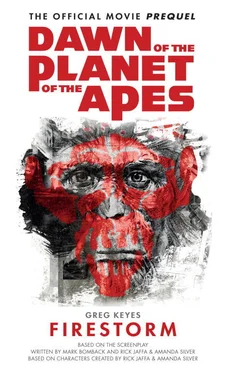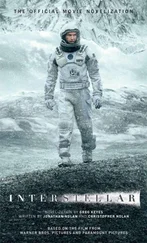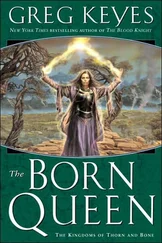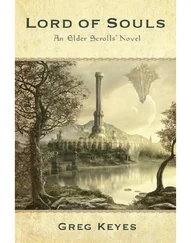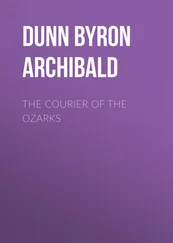“I’m so sorry.”
“It taught me something,” he said. “It taught me you can’t lose something unless you have it.”
“That’s a terrible lesson,” she said. “All the more because it makes sense to me. Last week it wouldn’t have. Now it does.”
She kissed him on the cheek and sat up. She reached for her shirt.
“I talk too much after sex,” she said. “I know this. It’s one reason…” She trailed off. “Never mind. Look, I’ll let you get some sleep.”
He caught her hand.
“Unless you very much object, I would like you to stay for a while,” he said.
“Well,” she said after a few breaths. “Maybe for a little while.”
She lay back down and spooned against him, and in what seemed a short time, she was asleep.
Dreyfus rubbed his eyes and closed his laptop. Then he reached for the television remote.
There was little there to give him hope. All of the rough patches of the world were heating up. Serbs and Croats, Hutus and Tutsis, Shi’ites and Sunnis and any of another fifty ethnic and religious groups blamed one another for the plague that was killing them all. Minority groups in eastern China were rising against Beijing and being brutally punished for it.
Indonesia, which had the fewest reported cases of the Simian Flu, had closed its borders and was violently enforcing the isolation. Christians were being burned alive in Egypt and Muslims were being beaten to death in Tennessee. The Ganges was aflame from a chemical spill near the city of Varanasi. Some people were taking it as a religious sign of some sort and were immolating themselves in the burning river.
He absorbed all of that for a few minutes and then switched to a local channel.
He found himself regarding Claire Sang, the Channel Five anchor. The newsroom set was poorly lit, and everything about it looked messy. Sang looked as if she hadn’t slept in days, and no amount of makeup could hide the dark circles under her eyes.
“We have breaking news,” she said. “Word has come in that detainees in the Haight Ashbury quarantine zone have broken through police lines. Many have armed themselves with police firearms, and have begun moving through town, setting fire to buildings as they go. The police and the National Guard have been able to provide little resistance to this armed and highly dangerous mob.”
The screen cut to shaky, hand-held images as she talked, showing hundreds of dirty, desperate looking men and women walking, running, and, in some cases, crawling through the streets. Fires leant an unearthly glow to the scene, and the patter of gunfire rang somewhere off-camera.
Dreyfus felt as if the floor was dropping out from under him.
“No, no, no,” he said. “I’ve got to get down there.”
“No you don’t,” Patel told him.
“We have to stop this!”
“No sir, with all due respect, you’ve put yourself in the path of too many of these things already.” Patel didn’t move, and he looked as if he was ready to stop Dreyfus, as well—physically, if necessary. “You aren’t running for anything anymore. You’re mayor now. The city is your responsibility. That –” he gestured at the screen “– is not the only thing that demands your attention.
“We’re up to two hundred thousand dead. Two more hospitals have been torched by these Alpha/Omega assholes. That joker in South San Francisco says they’ve officially seceded from California or the Union—which one isn’t clear—and claims they’ll shoot to kill anyone who crosses into their ‘sovereign territory.’ Meanwhile, city services are down everywhere.”
“I know that,” Dreyfus muttered, massaging his forehead. “Don’t you think I know all that?”
He leaned back in his chair.
“Ah, God,” he murmured. “What am I going to do?”
* * *
Malakai woke before the dawn. He was alone, so he dressed and went outside, filling his lungs with the cool mist that was in the air, knowing that at last something was happening. Something was moving. A wind was coming.
* * *
After Solange and the boy died, Malakai became very still inside. He left Burundi and found work as a mercenary, and he did that work for decades. The faces of the dead became more familiar to him than the faces of the living.
And at last, one day, he found himself back in the Virunga Mountains, along with some of the men with whom he worked. Zaire had become the Democratic Republic of Congo again, and rebel groups had been forced into the mountains. It was different, though—the mountains with their gorillas had become a national park. It was illegal to kill the beasts, and there were rangers to enforce such laws, at least in theory.
Some, he knew, poached the beasts themselves.
But rangers were in short supply, as various forces from the Congo war hid and fought each other in the mountains. Malakai and his mercenaries were one such force. Retreating from a defeat in the lowlands, they were trying to cross into Rwanda, where hopefully the rest of their company would be waiting for them.
However, they were surrounded on all sides, mostly by Hutu militias. The good news was that most of the Hutus didn’t know they were there. The bad news was, that wasn’t going to make it any easier to move through them. So instead, they went higher into the mountains.
He found evidence of the gorillas on the fifth morning, and took his ragged, half-starved band toward them, thinking that at least they would eat well tonight. But before they arrived, gunfire began ahead. Crouching low in the brush, they hurried to see what was going on.
They found about fifteen Hutu militiamen, firing at a family of gorillas. They shot one in the leg, and laughed as it fell and began to turn in the grass. A big male charged, and they opened up on him, shredding his chest and face. When he went down they starting picking off the little ones, shooting to wound, not to kill. They were plainly enjoying themselves.
Malakai took careful aim at the Hutu leader. The man never even heard the sound of his rifle. Then the rest of his men followed suit, and started firing.
It was over in moments. He went among them, finishing the Hutus with his knife.
The gorillas were watching them. The big one was dead. The one with the wounded leg was dragging itself toward the trees. Malakai put a round in its head.
One of his men, Daniel, raised his weapon to shoot another.
“No,” Malakai said. “Leave them be. This is more meat than we can eat or carry. Who knows, we may need them later. And bullets…” He remembered his uncle. “Bullets are expensive.”
“But if we leave them, the Hutu will have them to eat.”
Malakai watched the females trying to calm one of the little ones that had been shot. She was looking right at Malakai, mixed terror and confusion in her gaze. He remembered the story of the brothers—Whiteman, Blackman, and Gorilla. But it seemed to him that there were really only two brothers—man and gorilla. Men, white and black, killed each other, and for thousands of different reasons. Men killed gorillas, too. But the only time a gorilla ever killed a man was in defense of its own, and even then very rarely.
So there were men, and there were gorillas.
And he was not a gorilla.
“That’s a good point,” he said. “Kill them all.”
He walked away as they started shooting, and began to smoke a cigarette. He thought to go only a short distance.
Instead he kept walking until he was in Uganda. There he withdrew the money he had been saving for almost thirty years, two thirds of every cent he had ever made as a mercenary. The next day he boarded a plane for the United States.
* * *
“I guess we’re ready,” Clancy said, from behind him.
Читать дальше
